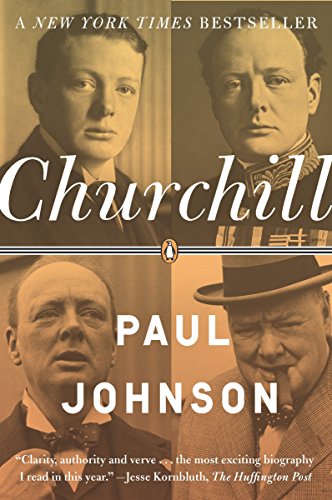Sublime
An inspiration engine for ideas
Churchill's unwavering leadership during WWII, the critical importance of maintaining morale, and learning from weaknesses through deliberate self-assessment
TRANSCRIPT
He understands the danger. Again, humans are very complex, in many ways, irrational creatures. And the fact is he understood that there very few enemies that are more dangerous for yourself and your team and whatever you trying to do than poor morale Nothing must now be said which would disturb morale or lead people to think that we should not
... See more

King George VI told his own diary, “I cannot yet think of Winston as P.M.” The king encountered Lord Halifax on the grounds of Buckingham Palace, through which Halifax had royal permission to walk in his commute from his home in Euston Square to the Foreign Office. “I met Halifax in the garden,” the king wrote, “& I told him I was sorry not to have
... See moreErik Larson • The Splendid and the Vile: A Saga of Churchill, Family, and Defiance During the Blitz
On 8 August, on his second visit to the front, Churchill made seven speeches to four armoured brigades in six hours.60 Back in Cairo for dinner at the Embassy with the two SAS heroes David Stirling and Fitzroy Maclean, he challenged Smuts to see who could recite the most Shakespeare. After a quarter of an hour Smuts lost, as Churchill churned on. A
... See moreAndrew Roberts • Churchill: Walking with Destiny
His greatest critic, Winston Churchill, was widely ridiculed when he declared, “You were given the choice between war and dishonour. You chose dishonour and you will have war.” Churchill’s views on Hitler polarized the country but the
Sonia Purnell • Kingmaker: Pamela Harriman's Astonishing Life of Power, Seduction, and Intrigue
Churchill “venerated tradition but ridiculed convention.”
Ryan Holiday • Discipline Is Destiny: The Power of Self-Control (The Stoic Virtues Series)

Winston Churchill kept a close eye on Gubbins’s work and praised him for organizing the Auxiliary Units ‘with thoroughness and imagination’. He also expressed his hope that the guerrillas would fight to the death inside the German beachhead and ‘perish in the common ruin rather than to fail or falter in their duty’.41
